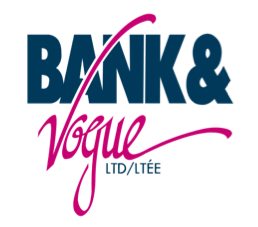Even in the digital age, there is still something about holding a book in your hands and turning pages that excites the senses and encourages a love for reading. In the United States, an estimated 2 billion books are published each year which means that a large number of trees are getting cut down to produce paper and paperboard for reading materials. Though the move to ebooks and digital reading platforms means that we are increasingly using bytes and not cutting down trees to read, it remains the case that one-third of the paper we use still comes directly from virgin raw materials — in this case, trees.
While we certainly need to think about the issue of waste reduction with the production of new books, what happens to the old books that readers no longer have use for? Namely, those books that readers store in basement boxes or toss in their garbage bins when they longer have use for them. We all know that if you’re an avid reader with a growing collection, it can be tough to find space for every new book you purchase. Especially if you’ve already got bookshelves that have limited space to begin with.
Book Recycling
 One solution for those who are either looking to collect new books but spend less, or those who are looking to get rid of books that take up needed space and no longer serve a need is book recycling. Recycling programs are a great way to extend the life span of a book, finding new owners for items that are considered useless to some but useful to others, making a few quick bucks, freeing up needed space, and reducing the logging of our forests. Reselling can sometimes be a gamble with items like clothes or shoes — but with books, this is rarely if ever the case. Especially now that there are so many platforms to find new homes for old books, or give one of your old books new life.
One solution for those who are either looking to collect new books but spend less, or those who are looking to get rid of books that take up needed space and no longer serve a need is book recycling. Recycling programs are a great way to extend the life span of a book, finding new owners for items that are considered useless to some but useful to others, making a few quick bucks, freeing up needed space, and reducing the logging of our forests. Reselling can sometimes be a gamble with items like clothes or shoes — but with books, this is rarely if ever the case. Especially now that there are so many platforms to find new homes for old books, or give one of your old books new life.
So How Do You Extend Your Book(s) Lifespan?
 If you are a book owner who has a number of old titles, and you are in desperate need of creating more space on your bookshelves, you’re probably asking how you can be environmentally responsible and extend the lifespan of your books when you’re finished with them? There are a few feasible options worthy of consideration. You might consider donating your gently used books to public libraries, schools, elderly homes, hospitals or friends who love a good book. You might also consider selling your books to local used bookstores or an online platform dedicated to recycling used books. The bonus with selling your old and unwanted reading materials is that you get the added benefit of making a few bucks while you also enrich the life of a fellow reader by expanding their book collection.
If you are a book owner who has a number of old titles, and you are in desperate need of creating more space on your bookshelves, you’re probably asking how you can be environmentally responsible and extend the lifespan of your books when you’re finished with them? There are a few feasible options worthy of consideration. You might consider donating your gently used books to public libraries, schools, elderly homes, hospitals or friends who love a good book. You might also consider selling your books to local used bookstores or an online platform dedicated to recycling used books. The bonus with selling your old and unwanted reading materials is that you get the added benefit of making a few bucks while you also enrich the life of a fellow reader by expanding their book collection.
Tips For First Time Sellers
 If you are a first time book seller, there are a few helpful tips that you might not know about, or might help make the process easier. First, be honest about the condition of the book. If there are damaged corners or missing pages, it is always best to let a potential buyer know. This will help ensure that you have the trust of your potential buyer. Also, don’t forget to let your buyer know about any markings in the form of highlighter portions or notes in the margins. Most buyers love clean copies even if the book is old. But there are also many buyers who don’t much mind marked copies. Some actually agree that it gives the piece character. Not to mention the added bonus on the buyers end of a discount because of the markings. Finally, be sure to package your books carefully in order to ensure that you keep the book in the same condition it was listed as. Not only will careful packaging ensure the safety of your product, but it will also maintain the trust that your buyer has in you, your product, and any future reading products that you might hope to sell.
If you are a first time book seller, there are a few helpful tips that you might not know about, or might help make the process easier. First, be honest about the condition of the book. If there are damaged corners or missing pages, it is always best to let a potential buyer know. This will help ensure that you have the trust of your potential buyer. Also, don’t forget to let your buyer know about any markings in the form of highlighter portions or notes in the margins. Most buyers love clean copies even if the book is old. But there are also many buyers who don’t much mind marked copies. Some actually agree that it gives the piece character. Not to mention the added bonus on the buyers end of a discount because of the markings. Finally, be sure to package your books carefully in order to ensure that you keep the book in the same condition it was listed as. Not only will careful packaging ensure the safety of your product, but it will also maintain the trust that your buyer has in you, your product, and any future reading products that you might hope to sell.
What Role Does Bank & Vogue Play in Book Recycling?
 At Bank & Vogue we have also witnessed a strong demand for quality loads of hardcover and paperback books, including children’s books. We have found through our business exchanges that despite a shift towards eBooks in the book industry, it doesn’t appear that this demand has decreased the desire among consumers for recycled materials. And recycled materials is where we thrive in terms of connecting consumers with quality used materials that now have renewed purpose.
At Bank & Vogue we have also witnessed a strong demand for quality loads of hardcover and paperback books, including children’s books. We have found through our business exchanges that despite a shift towards eBooks in the book industry, it doesn’t appear that this demand has decreased the desire among consumers for recycled materials. And recycled materials is where we thrive in terms of connecting consumers with quality used materials that now have renewed purpose.
In the case of book recycling, Bank & Vogue is a key player in this process. Together with online book retailers (our customers), who we ship quality loads of hardcover and paperback books to, we help our clients (as well as their clients) get great books at affordable costs. All our recycled books are bought and sold in bulk (a full trailer or container). In terms of load size, our shipments contain a minimum weight requirement (typically 12,000 pounds or more). In addition, in order to put together the loads that we ship, we are careful not to buy or sell books that have already been scanned for online sale. As a result, we have created partnerships with sellers that are both regular and long-term commitments. On our end, this has meant that we can maximize the value to our sellers because the materials that we ship out to our customers are higher quality goods that then go into market for resale.
 If you are an interested seller, especially an online book retailer, and you would like to learn more about how we go about recycling quality books, contact us today. Our staff is always ready and willing to provide as much information as is needed on our wholesale used books process and how you can incorporate these materials into your business.
If you are an interested seller, especially an online book retailer, and you would like to learn more about how we go about recycling quality books, contact us today. Our staff is always ready and willing to provide as much information as is needed on our wholesale used books process and how you can incorporate these materials into your business.
In order to begin the process, please be sure to complete the form on our contact tab (http://www.bankvogue.com/contact-us/) or give us a call at 1-866-613-0719 (North America) or 1-613-747-8465 (International).







